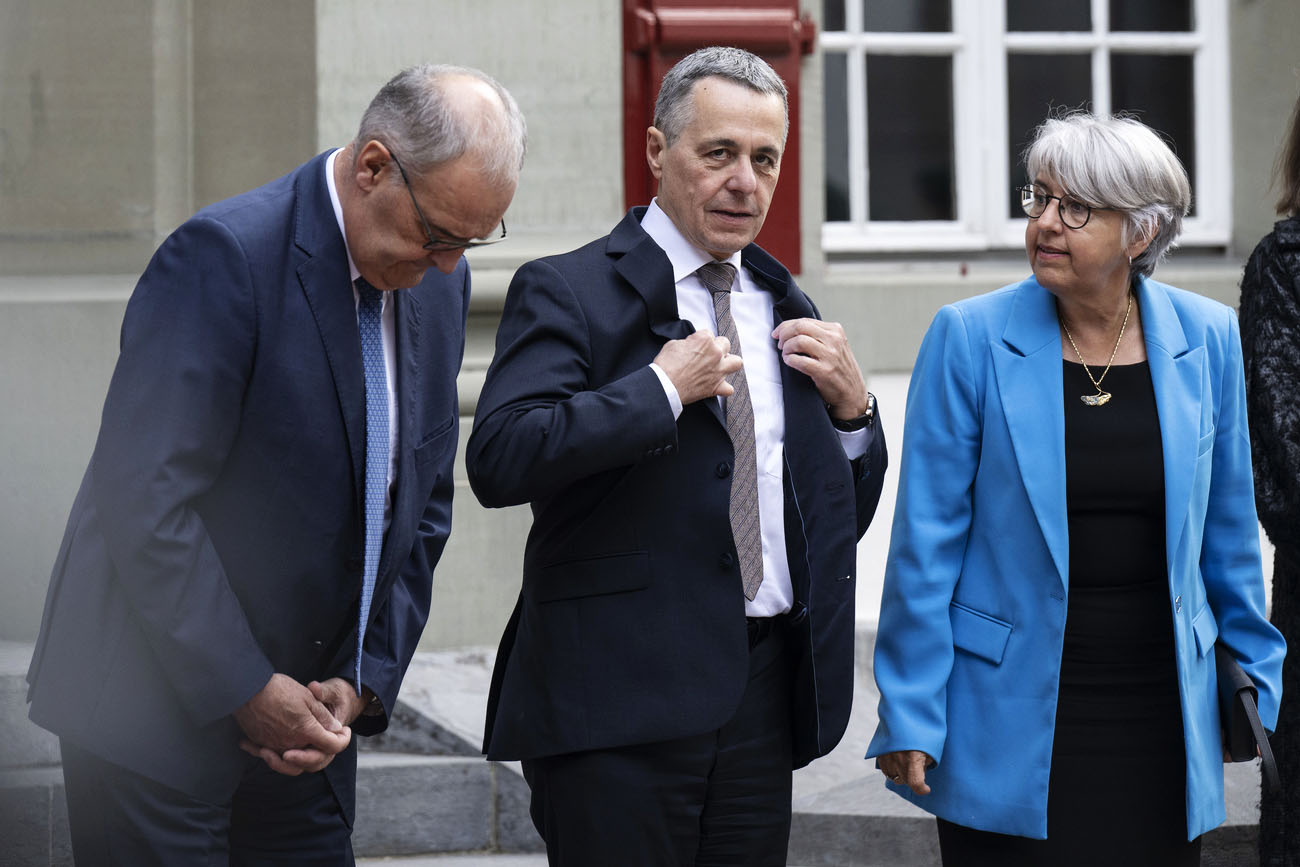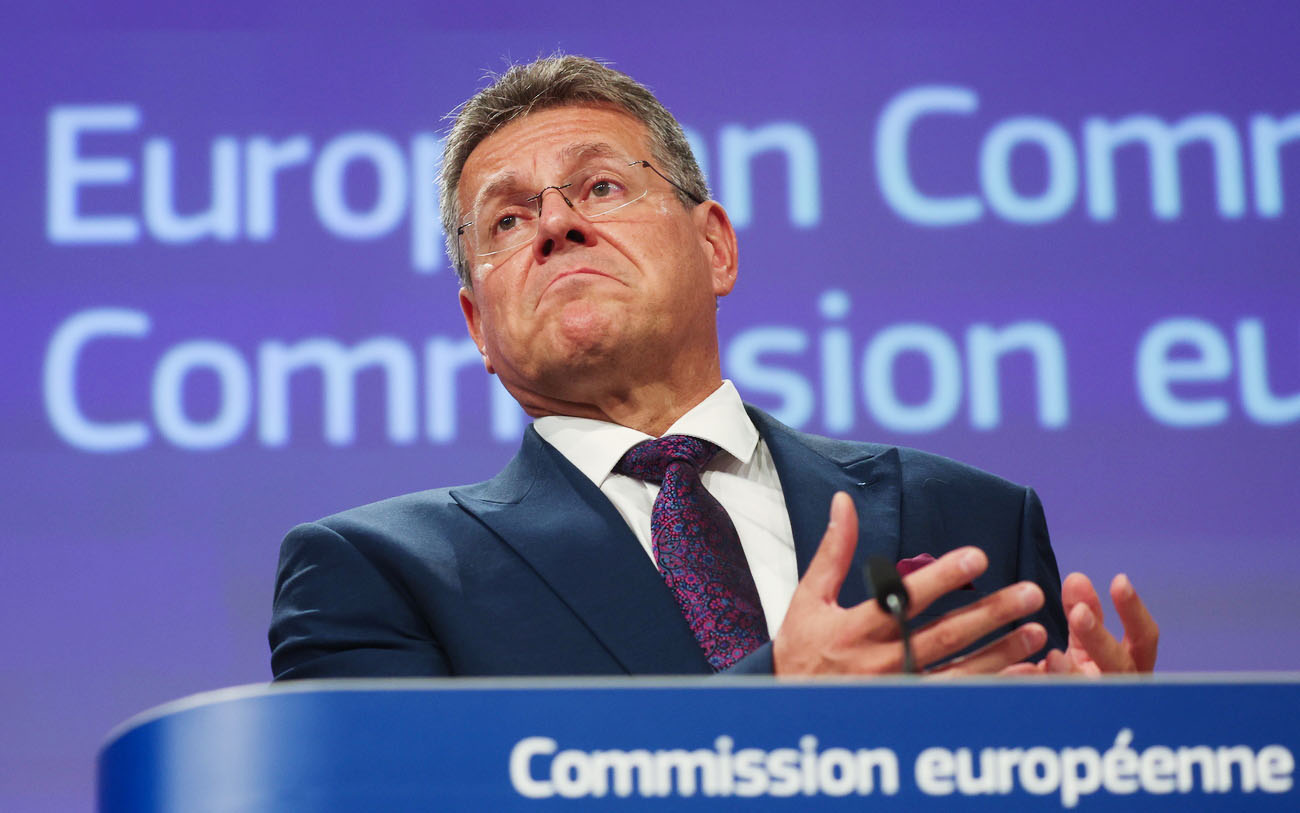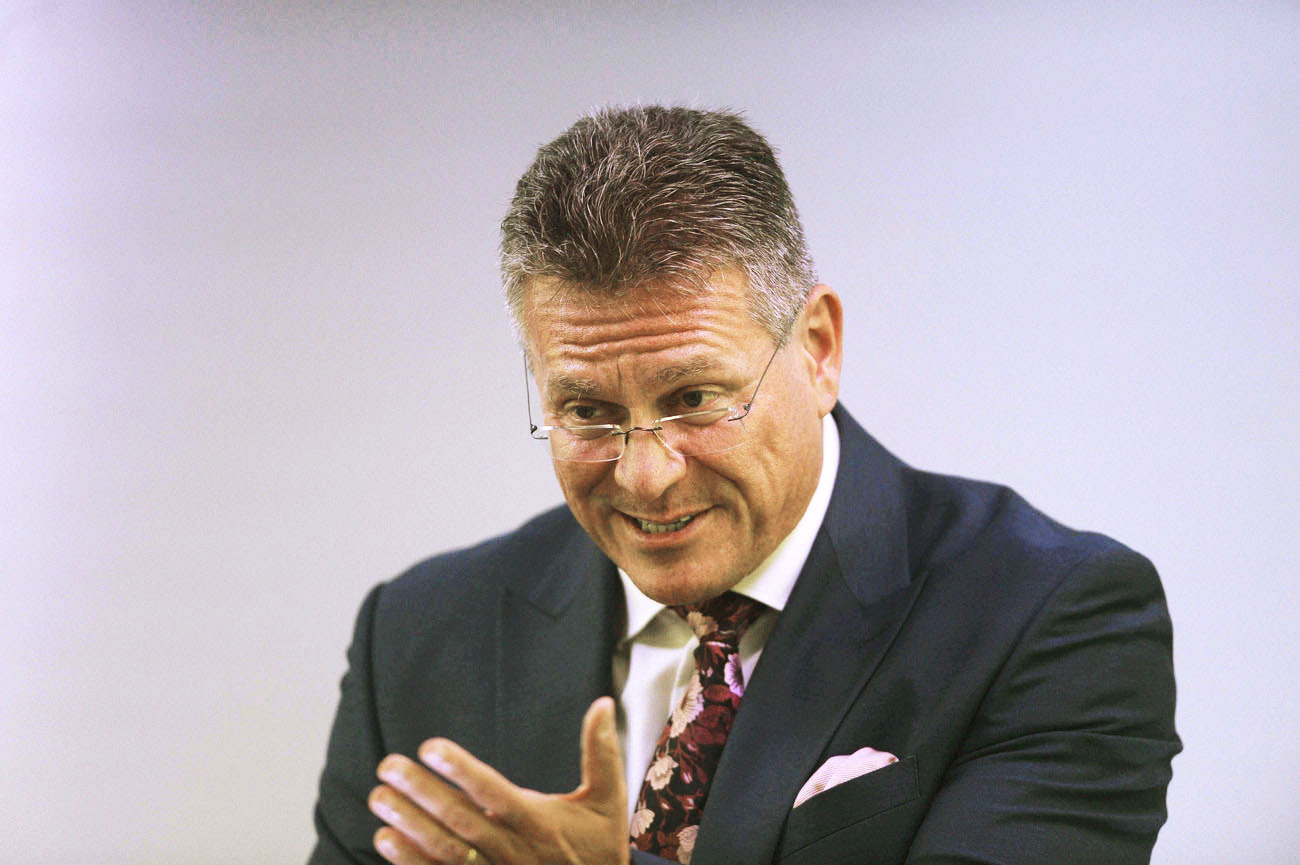
Swiss-EU relations: Bern prepares for a vacuum

Bern and Brussels had come to a tacit agreement to clarify their complicated relationship after the Swiss federal elections, which took place last month. What’s the situation now?
The latest episode in an increasingly difficult back-and-forth between the European Union and Switzerland slipped somewhat under the radar. In a press releaseExternal link from the State Secretariat for Migration (SEM) at the end of October, Switzerland, which is not part of the EU, claimed that the bloc discriminates against Swiss citizens.
Switzerland reiterated its point to the EU at a meeting in Brussels last week: “Swiss nationals in individual EU member states are affected by legislation which, in Switzerland’s view, is not compatible with the Agreement on the Free Movement of Persons”.
A manageable problem
Does the EU really discriminate against the Swiss Abroad? In Finland and Germany, at least, Switzerland says it’s seen evidence of this. The Swiss embassies in Helsinki and Berlin have reported the allegations to Bern, as the SEM explained in response to a request for information.
First, Swiss citizens who live in Finland must obtain a permit if they want to buy property. “From our point of view, this discriminates against Swiss citizens, for which there is no justification,” said SEM spokesperson Reto Kormann.
Second, to compensate for rising energy prices, this year Germany is paying all pensioners a lump sum of €300 (CHF289) – all pensioners, that is, except those who receive a pension from Switzerland. According to Switzerland, this also constitutes discrimination.
These accusations were put to the so-called Switzerland-EU Joint Committee on the Free Movement of Persons on October 26. This was the 26th meeting of the committee, which was created so both parties could present and exchange their concerns in a low-key way.
How serious is the problem? Around 20,000 Swiss pensioners live in Germany. If they all received €300, the disputed amount would total around €6 million. This is equivalent to the trade volume between Germany and Switzerland every 15 minutes. The two countries have more serious issuesExternal link to deal with than this.
The problem is also manageable in Finland, home to around 2,000 Swiss Abroad. The number of Swiss citizens who need a permit to buy property in Finland numbers just a little over 100.
In fact, Switzerland could resolve these issues directly with the two countries. Instead, Switzerland is taking its complaints to Brussels.
The European Commission now wants to examine whether they are at all justified. In view of the major unresolved issues between Switzerland and the EU, they are no more than quibbles.
Sand in the gears
But from Switzerland’s point of view, it does no harm to point the finger for once in Brüssels’ direction. Managing relations between the EU and Switzerland is like a game of poker, one in which the small Alpine state has been on the defensive for some time. In such phases, every grain of sand in the gears is a welcome addition to the negotiating table.
This is because, when it comes to the free movement of persons, Brussels is also accusing Switzerland of discriminating against EU citizens. At the centre of this accusation are the comprehensive wage protection measures that Switzerland once wrested from the EU.
These measures ensure that when EU companies send their workers to Switzerland, they must pay them high Swiss wages. Brussels has since accepted this, but in dispute are the “bureaucratic hurdles” that stem from strict controls by Swiss unions.
This complaint can be read in the European parliamentary reportExternal link on Switzerland. On October 3 the EU parliament dealt with this issue in front of a mostly empty chamber. However, EU Commission Executive Vice-President Maroš Šefčovič, who is responsible for the Switzerland dossier, made an appearance during the half-hour debate.
Šefčovič revealed that the free movement of persons is the most difficult topic in the talks between Bern and Brussels. “We believe that Switzerland is currently not fully implementing its obligations under the existing Agreement on the Free Movement of Persons,” he saidExternal link.
However, according to trade unionists, the EU parliament is currently reversing the trend on wage protection. In the same debate, two parliamentarians – a Social Democrat and a Green – explicitly argued that Switzerland be granted temporary exemptions or permanent measures so that it could retain its wage protection.
This is because within the EU word has got out that the Swiss wage protection measures could become a model for many member states – precisely because they are so highly developed. From this left-wing perspective, it would therefore be to Switzerland’s detriment if the wage protection were cut back..

The EU wants a ‘fair and lasting contribution’
During the parliamentary debate, Šefčovič also spoke plainly about the other topics that Switzerland still wants to discuss with the EU. These include the role of the European Court of Justice, the amount of regular entry funds into the EU market (cohesion payments) and the dynamic adoption of legislation.
“Principles such as dynamic legal harmonisation and dispute settlement with a clear role for the Court of Justice of the European Union are among the key elements that must be part of the institutional solution,” said Šefčovič. “The same applies to the fair and lasting contribution to the Union’s cohesion policy. This goes hand in hand with Switzerland’s access to our internal market.”
Three weeks later, on October 22, 2023, Switzerland elected a new parliament. The result indicates that the mood in Switzerland has become even less EU-friendly. The winner was the right-wing conservative Swiss People’s Party, which radically rejects the European Court of Justice as “foreign judges”. The Social Democratic Party, which will defend Switzerland’s high level of wage protection at all costs, also gained in strength.

Wait for signs
This complicates things for the Swiss government, which had signalled to the EU that it wanted to restart negotiations right after the elections.
For months the Federal Council (executive body) has kept its strategy a secret. The only option is to wait for signs, but two things stand out.
First, by continuing to lobby supposedly influential member states, the government keeps using a tactic that has rarely worked with the EU in recent years.
Second, the government does not believe that there will be any significant developments next year. It is preparing for a vacuum phase.
In mid-November French President Emmanuel Macron will travel to Bern on a state visit. The main issue on the Swiss agenda will be European politics.
Charles Juillard, a senator from canton Jura, is involved in the preparations. He told the news agency Keystone-SDA that Switzerland wants to sound out what support it can expect from Paris in EU dossiers such as the electricity market or the Horizon Europe research programme.
Interim solutions
By continuing to exclude Switzerland from Horizon, the EU is maintaining pressure on Switzerland. This weakens Switzerland as a centre of research and hurts its universities, in particular.
In its first meeting after the elections, the government decided to allocate a further CHF84 million for 2024 to fund research in place of Horizon. This brings the total amount with which Switzerland has bailed out its research environment since abandoning negotiations on a framework agreement to CHF1.85 billion.
If a return to Horizon Europe is still not possible in 2024, the Federal Council will look for yet another interim solution – to replace the interim solution.
Adapted from German by Sue Brönnimann/Geraldine Wong Sak Hoi

In compliance with the JTI standards
More: SWI swissinfo.ch certified by the Journalism Trust Initiative
































You can find an overview of ongoing debates with our journalists here . Please join us!
If you want to start a conversation about a topic raised in this article or want to report factual errors, email us at english@swissinfo.ch.